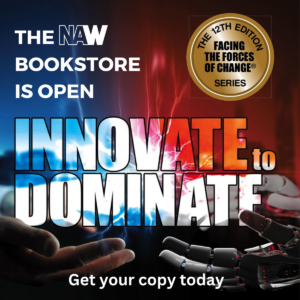As featured in MDM
By: Mark Dancer, NAW Fellow, Author of Innovate to Dominate, Facing the Forces of Change, and CEO of Network for Business Innovation
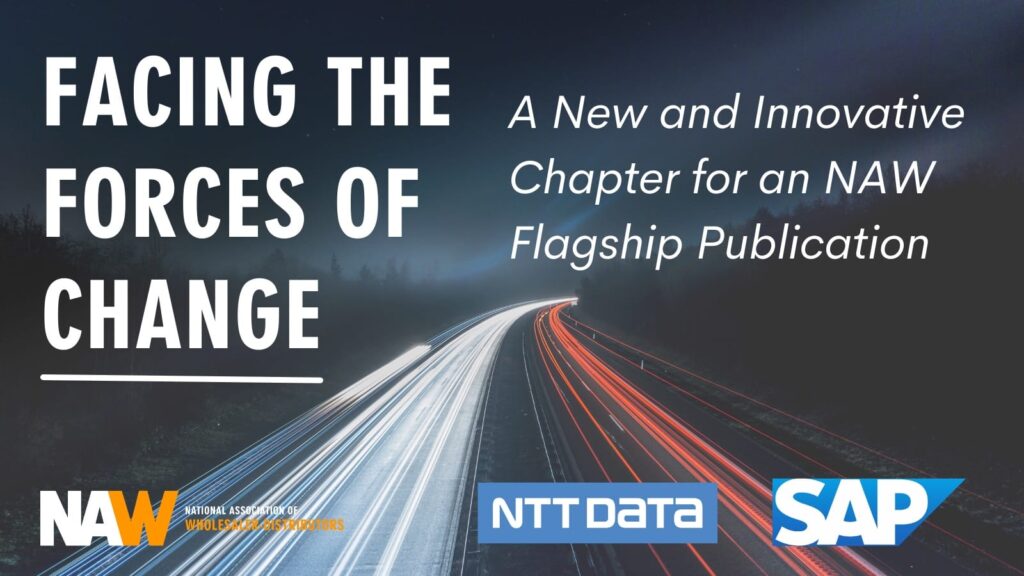
With a little understanding and a lot of teamwork, distributors can start discussions today that will lead to a brighter tomorrow for the supply chain and beyond.

Recently, I had the honor of participating in an innovation retreat sponsored by the National Association of Wholesaler-Distributors’ (NAW) Institute for Distribution Excellence and attended by several leading distributor executives and industry thought leaders. Bart Tessel, NAW’s Chief Innovation Officer, conceived and organized the event, which was facilitated by Bart Foster, CEO and Founder of BusinessOutside® as the 2023 NAW BusinessOutside Innovation Forum. BusinessOutside is an organization focused on inspiring performance and innovation by helping individuals to step outside their comfort zone—literally and figuratively—in the great outdoors and in settings that encourage trust, commitment, and accountability. Our results were fantastic, and our work is continuing, contributing mightily to our Facing the Forces of Change® initiative to find and share innovation practices specifically designed for distributors, unlocking their potential to lead our markets, society, and economy forward. In this first of three posts, I share what we learned about conversations as the lifeblood of innovation. In the next two posts, I will focus on putting conversations to work to unlock opportunities for distributors, then explore the appropriate scale of distributor aspirations: Specifically, how high we should aim as an $8 trillion industry managing a third of our nation’s economy.
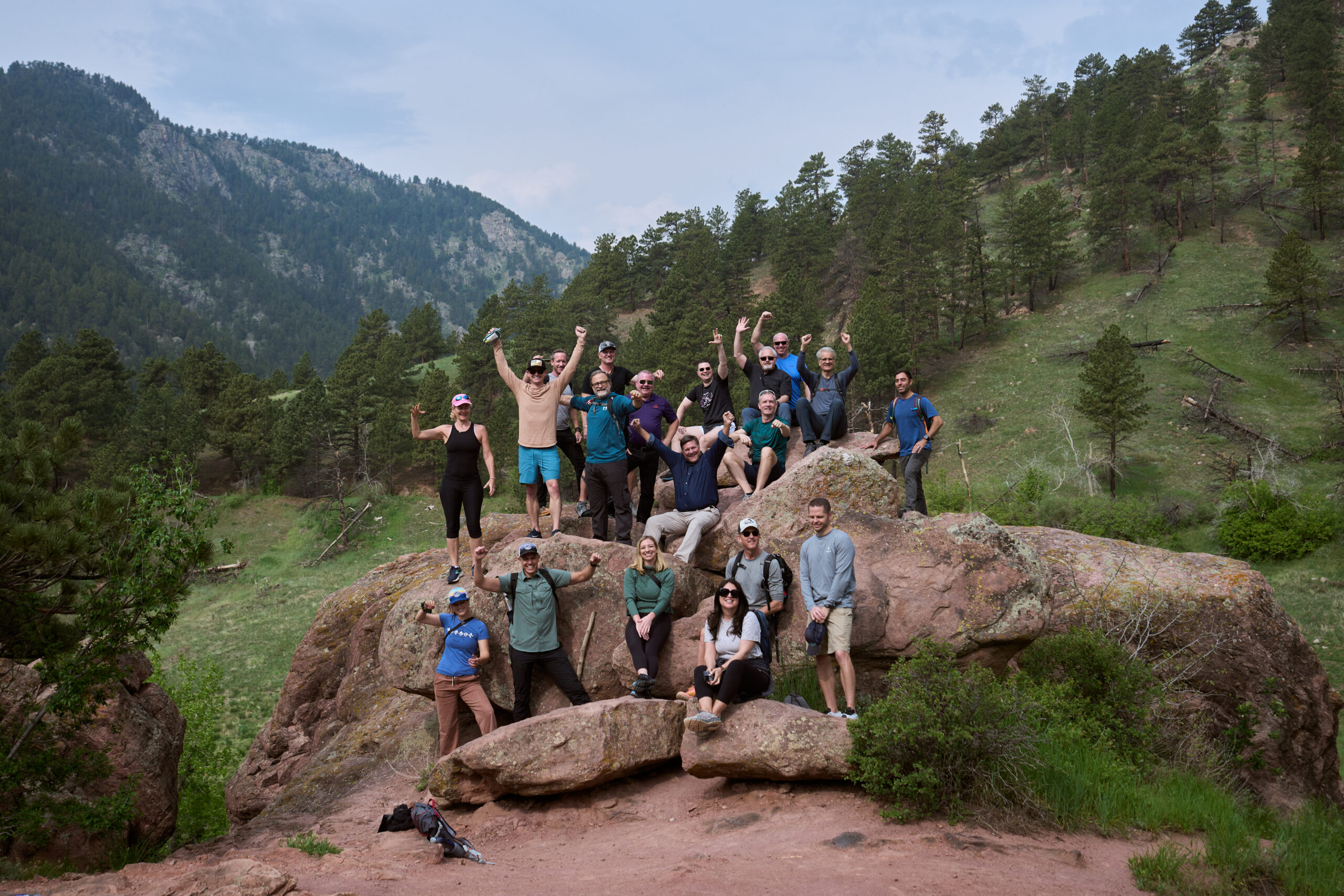
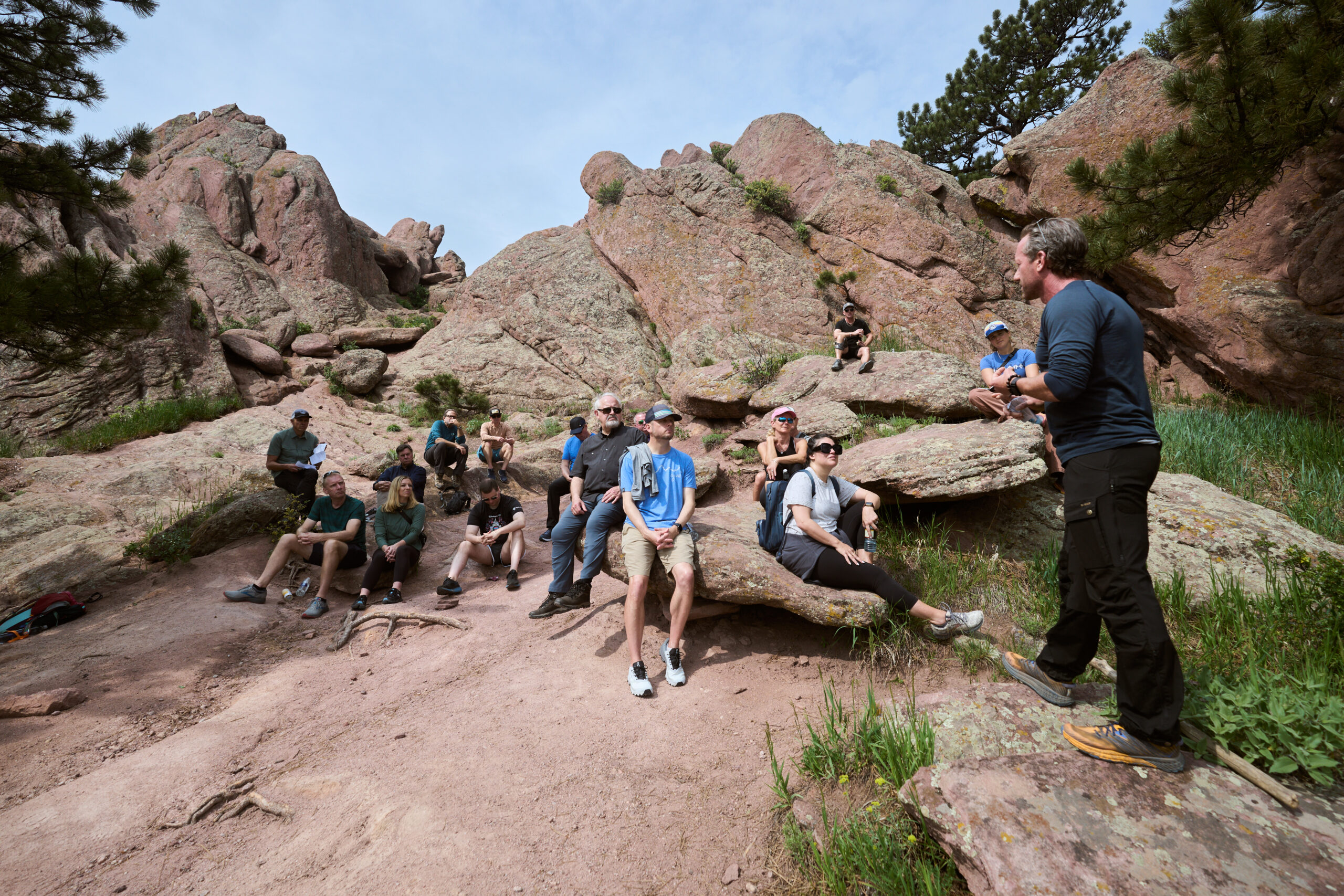

A conversation upgrade
When it comes to conversations about the future of business, distributors have a problem. A big problem. Distributors are intermediaries in the traditional value chain, and their profits are buffeted by real-time externalities: the daily ups and downs of forces that drive customer purchases; supplier incentives designed to continuously shape distributor purchases and activities; rising labor costs and talent shortfalls; fluctuating energy costs; ever-increasing state and federal government regulations; and more.
For distributors, survival demands mastering the urgency of now. Traditional internal conversations center on metrics that measure how the business has performed today, over the last month or quarter, and against the same time a year ago, while all too many external conversations go to tracking what other distributors are doing—in order to keep up with best practices and avoid falling behind. And when a good idea comes along, one that might lead to bold innovations or breaking free from the pack, distributors hold them close to the vest, not wanting to reveal what they may do someday when their attention might turn to the future.
Distributor conversations need an upgrade—but first, a new mindset that embraces the pursuit of new possibilities, achieved through innovations and powered through conversations. At our innovation retreat, I sensed a way forward. Distributors don’t need to reinvent their businesses before they can succeed. Instead, distributors must notice that a core capability once taken for granted is now an undeveloped asset that is right for our times, with the ability to cure what ails us in the digital age: the loss of human connections and human work, replaced by virtual business and automated jobs. Distributors are and always have been people-centered businesses, and since conversations can’t happen without people, distributors can be at the center of innovation. I’ve leapt across more than a few details, so let me connect the dots before diving into the power of conversations.
From local to digital
As data and artificial intelligence increasingly guide more business in the virtual realm, distributors offer a counterweight, doing business in the real world and operating a unique, powerful, and essential business model. Distributors are hyper-local businesses organized around branches staffed by people and embedded in communities. Distributors live and work where their customers live and work, a human-to-human presence unmatched by manufacturers, marketplaces, and the distant elements of the global supply chain.
Way back before the Internet, distributors imagined themselves as stewards of local inventory, pre-deployed in warehouses, destined to serve local demand. They are still that, of course, but the necessity of local inventory is challenged, if not disrupted, by ever-faster delivery from faraway places, offered by data and tech-savvy marketplaces and B2B suppliers intent on cutting out intermediaries in the same way as direct-to-consumer (DTC) brands.
Distributors are investing in digital capabilities and championing the cause of data-driven intelligent business practices, but what distinguishes them, what makes them truly different, is their ability to create people-centered customer relationships.
In the digital age, many companies have doubled down on present-day transactions as the measure of customer relationships, including repeat purchases, share of wallet, and a willingness to pay for services rendered. However, the economic value of any company is not determined by transactions measurable today, but rather by the certainty of sustained and growing business to come. So, in times of epic change marked by digital transformation, the talent crunch, evolving work preferences, and a generational transfer unlike any other, innovation—the ability to do business differently—is the ultimate measure of a company’s worth. And if conversations enable innovation, then conversations are not a nice-to-have. They are a strategic necessity.
The power to innovate
Working with Foster, our team of leaders and experts explored the power of conversations as enablers of innovation—first in a distributor’s own business and then for helping customers innovate in theirs. Foster explains the power of conversation as follows:
Humans crave genuine connections and authentic conversations. Through vulnerability and genuine discussions, we can build trust. When we establish trust, we can share, ideate and create new ideas together. Powerful conversations flow from intentionally engaging and interacting with each other, leading people to think and act differently.
JD Ewing, Chairman and CEO of COE Distributing, agrees, offering:
The power of conversations can unlock information and answers to questions not yet asked or even thought of. Engaging in conversation stimulates and activates all participants, fostering organic innovation through their collective thinking.
Wanting more, I asked ChatGPT: “Why are conversations essential for innovation?” As a large language model (LLM), ChatGPT is a tool for summarizing what is already known, expressed in well-organized and sometimes compelling prose. OpenAI’s LLM creation didn’t disappoint:
Conversations are undeniably at the core of the human experience, serving as the lifeblood of our interactions and connections with others. They go far beyond the mere exchange of words, encompassing a profound essence of understanding, empathy, and connection.
Through conversation, we convey information, ideas, and emotions, establish and nurture relationships, share experiences, and explore the depths of our thoughts and beliefs.
It is within conversations that we learn, grow, and expand our horizons as we engage in the dynamic interplay of perspectives and exchange knowledge and wisdom.
Conversations ignite our curiosity, challenge our assumptions, and inspire us to think critically and introspectively. They provide a platform to express ourselves, be heard, and understand others, fostering a sense of belonging and deepening our sense of humanity.
In essence, conversations are the fundamental threads that weave the tapestry of our social fabric, shaping our identities and worldviews and, ultimately, shaping who we are as individuals and as a society—and how we do business.
Wow. A bit verbose, perhaps, but on point, signaling a critical mission for NAW. Frequent readers know that I often share insights from a Hoover Institution paper offering guidance for advancing prosperity for the betterment of society and the economy: “The quality of a nation’s institutions is more important than natural resource endowments.” NAW is one such private institution, perhaps the one with the most extraordinary power—and responsibility—for helping foster conversations that can advance distribution as a force for good in our fast-changing world.
Recognizing NAW’s possibilities, Heidi Levitt, co-CEO of Levitt Safety Limited, observed:
The power of conversations hosted by NAW acting as a platform—a place where member companies can share solutions, software offerings, innovation hacks, and other insights impacting our businesses, as well as bring together a network of subject-matter experts to help with implementations, human resource development, legal issues, and more—will help every distributor navigate challenges that exist within our companies, and without. Doing so will help build trust and shared ideals at a scale that will ensure distribution’s viability and long-term profitability.
Wise words——and a bold call to action for NAW and its members, who are working together for the betterment of all.
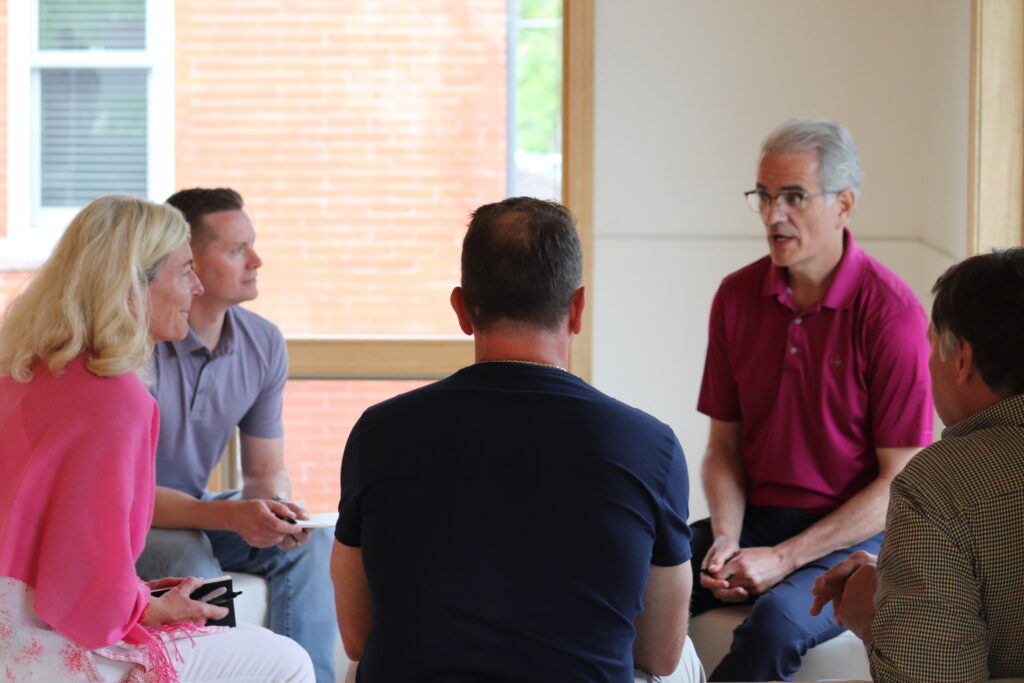
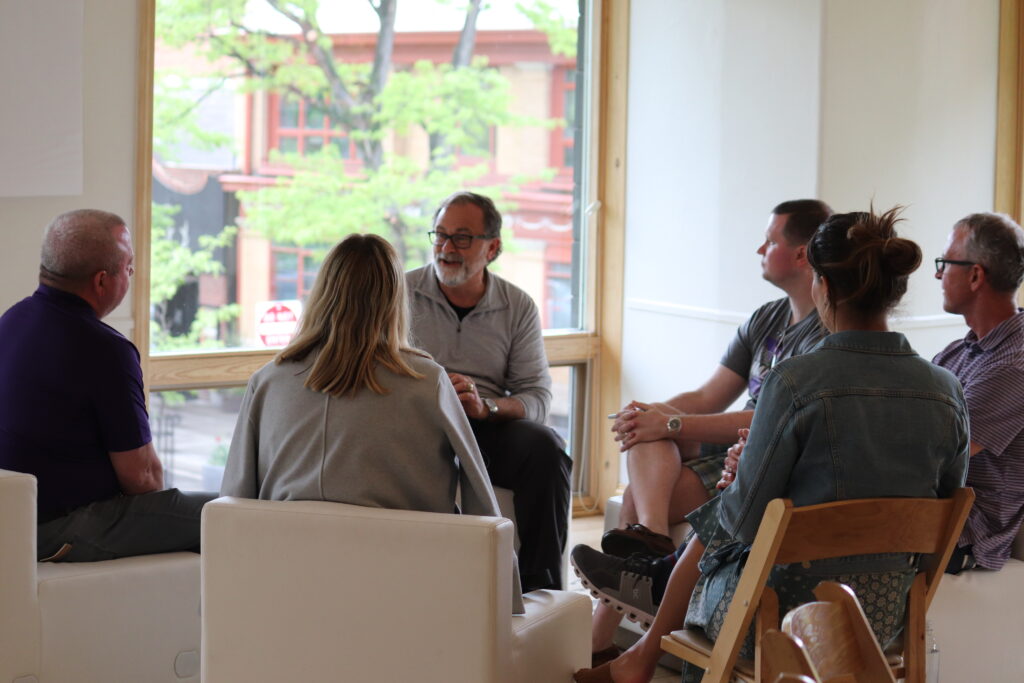
Leaning in
In my recent Supply Chain Quarterly article, I suggest another call to action: a radical collaboration led by distributors to build a supply chain that is not just resilient to future shocks but responsive to the needs and aspirations of customers, and regenerative for workers and communities. I offer three North Stars for innovation: proximity, flourishing, and generational transfer. I will define and apply proximity and flourishing in my next post. Still, in this one, I want to emphasize the importance of the coming generations as essential for having the right conversations about the future of distribution.
We are in the midst of a generational transfer unlike any that has come before, moving from an analog world to one shaped by the power of data, digital technologies, and the Internet. Today’s leaders must engage the rising generations—not just because they are masters of smartphones and the Internet, but because they are the generations that will live and work in the future. Try as we might, Boomers cannot control the future. Our role is to lend our experience, offer a helping hand, and assign innovation responsibilities and accountabilities when we can.
With this in mind, I offer a concluding perspective on the intersection of conversations and innovation, from Riley Ferrero, Lead Implementer at BusinessOutside, and a member of Generation Z:
Innovation is an inherent risk, and risk is an inherent expression of vulnerability. To impose limitations on our vulnerability—in casual conversations, in introductions, in procedure, in descriptions, and in ideation—is to limit our capability. Seek to move beyond what’s most comfortable and toward what’s most authentic; you will quickly discover a reciprocated attitude of newfound confidence.
In Ferrero’s comments, I sense value placed on human connections, an understanding that there are problems to be exposed, then solved, and a practical orientation to getting things done—all of the necessary ingredients for conducting conversations that must shape the future of distribution, save one: technology. I suspect that for Ferrero, and his generation, the use of data, artificial intelligence, the Internet, and all other digital technologies are a given, not needing a mention.
Working across generations, we must use technology in the service of human needs—supporting connections, improving productivity, creating solutions, and building a supply chain that is resilient, responsive, regenerative, and worthy of our times.
If you have any questions or comments, please leave them below. Or, if you prefer, reach out to me at mark.dancer@n4bi.com, Bart Tessel at btessel@naw.org, or Bart Foster at bartfoster@businessoutside.com.
